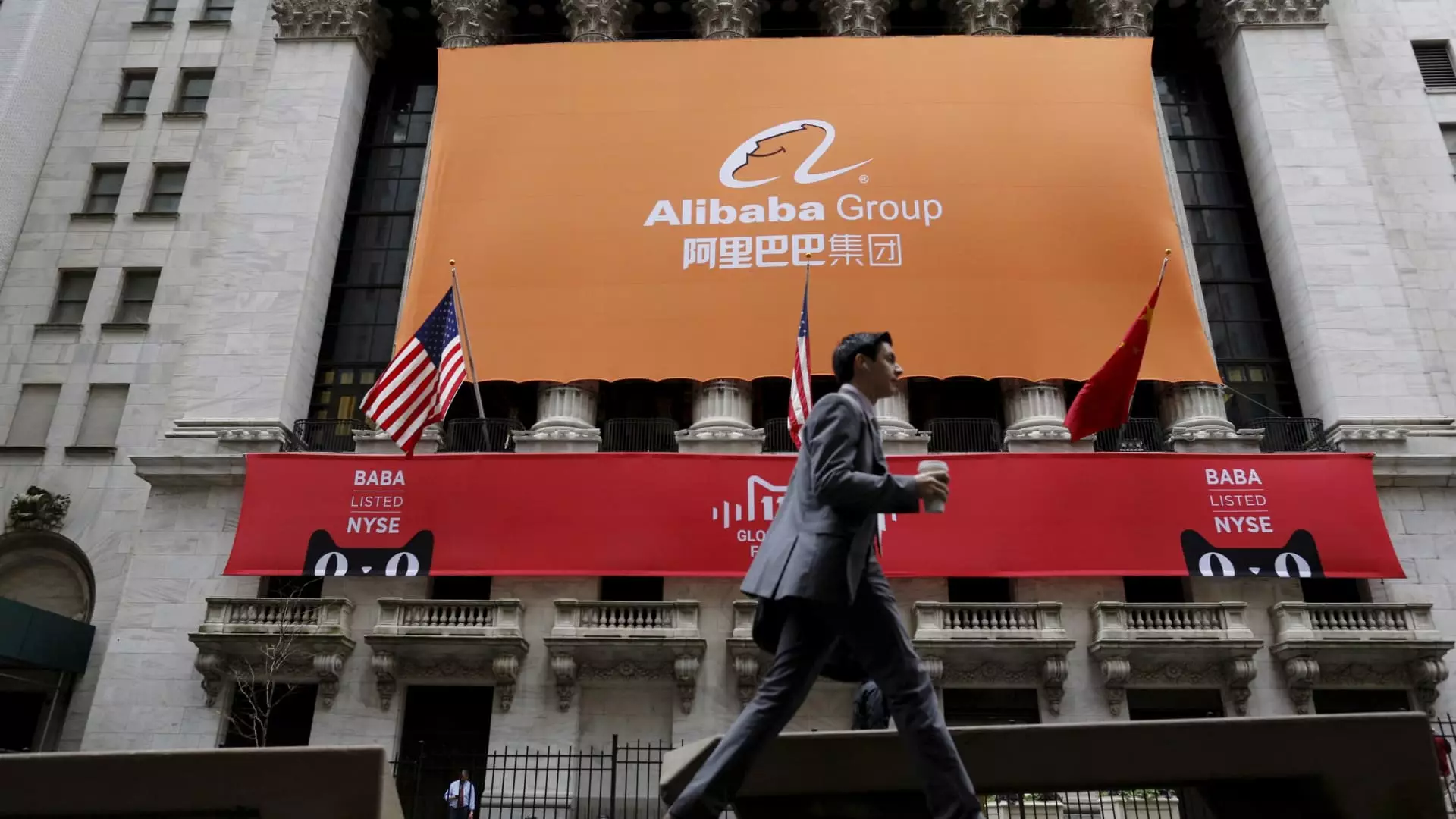Alibaba, one of the leading e-commerce giants, saw a surge in its shares recently after founder Jack Ma expressed his satisfaction with the company’s progress. This positive sentiment comes on the heels of current Chair Joe Tsai’s confidence in Alibaba’s ability to maintain its dominance in the e-commerce industry. However, despite these optimistic outlooks, Wall Street analysts are exercising caution and have trimmed their price targets for Alibaba shares. Their primary concern revolves around the heavy investments Alibaba is making to drive future growth.
According to JPMorgan analysts, Alibaba’s increased focus on investments in core operations such as domestic and international e-commerce, as well as cloud services, has led to a reduction in their earnings forecasts. The decision to prioritize long-term growth over short-term gains has prompted JPMorgan to lower their price target for Alibaba shares. This shift in strategy has been reflected in the company’s recent organizational restructuring, which aimed at unlocking shareholder value through spin-offs and strategic realignments.
Despite Alibaba’s efforts to adapt to changing market dynamics, the company has faced several setbacks in recent months. The cancellation of planned IPOs for its cloud and logistics businesses has forced Alibaba to reassess its approach to innovation and growth. Acknowledging these missteps, Joe Tsai emphasized the importance of improving the shopping app user experience and reorganizing the company’s personnel to align with the revised strategy. Moreover, Eddie Wu’s appointment as CEO and head of the cloud business signifies Alibaba’s commitment to overcoming its operational challenges.
Alibaba’s core e-commerce platforms, Taobao and Tmall, face stiff competition from emerging players like Pinduoduo and Douyin, owned by ByteDance. These new entrants have disrupted the market with innovative offerings and heightened customer engagement. Additionally, in the realm of generative artificial intelligence, ByteDance’s Doubao chatbot has outperformed Alibaba’s Tongyi Qianwen AI chatbot in terms of user adoption and engagement. This disparity underscores the need for Alibaba to strengthen its AI capabilities to remain competitive in the evolving digital landscape.
Looking ahead, Alibaba’s financial performance is expected to remain under pressure due to ongoing investments in user acquisition and new business ventures. Analysts predict a potential uptick in the company’s financial metrics in the second half of the year, contingent on macroeconomic recovery and the successful execution of its business strategy. However, concerns linger over Alibaba’s ability to effectively monetize its AI capabilities and drive sustained growth in a rapidly changing market environment. While some analysts maintain a bullish outlook on Alibaba’s prospects, others adopt a more cautious stance, emphasizing the need for prudent risk management and strategic planning.
Alibaba’s journey towards sustainable growth and market leadership is fraught with challenges and opportunities. As the company navigates through a period of transformation and uncertainty, its ability to innovate, adapt, and execute will determine its long-term success. By addressing operational inefficiencies, enhancing technological capabilities, and fostering a culture of continuous learning and improvement, Alibaba can position itself as a leader in the global e-commerce landscape. The road ahead may be fraught with obstacles, but with a clear vision, sound strategy, and unwavering commitment to excellence, Alibaba can overcome its current challenges and emerge stronger and more resilient in the digital age.

